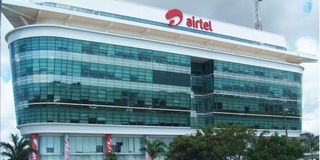Why telecom companies now selling their towers

What you need to know:
- The views come at a time when Airtel Africa Plc has agreed to sell off Airtel Tanzania’s tower portfolio in a deal valued at about Sh400 billion.
Dar es Salaam. The sale of communication towers has become a common agenda for telecommunication firms because of the high costs and complexities associated with their running, analysts said yesterday.
The views come at a time when Airtel Africa Plc has agreed to sell off Airtel Tanzania’s tower portfolio in a deal valued at $175 million (about Sh400 billion).
Telecommunication towers are to be sold to a joint venture owned by a subsidiary of SBA Communications Corporation and Paradigm Infrastructure Limited.
Similarly, in 2010, Millicom International Cellular, which trades as ‘Tigo,’ agreed to sell approximately 1,020 towers to towers management firm Helios Towers.
In the transaction, Tigo got $80 million (about Sh184 billion aton the prevailing exchange rate) in cash up front and that it also retained a “significant minority interest” in Helios.
The pair also announced it would get into a long term leasing agreement with Helios providing Tigo with access to wireless towers and a build-to-suit agreement to support the company’s network expansion.
In October 2017 Vodacom Tanzania Plc sold its stake in the Tanzania unit of Helios Towers Africa for $58.5 million (about Sh135 billion on the prevailing exchange rate).
It sold its 24.06 percent stake in Helios Towers Tanzania Ltd to that company’s parent company, HTA Holdings.
“Basically, owning and managing towers was not the core business of telecommunication companies. Their main business is that of providing mobile package service to their customers,” said a Dar es Salaam-based lawyer, Mr Kheri Mbiro.
He said by owning and managing towers, telecommunication firms could find themselves in a situation whereby they had to put 60 percent of their time into tackling challenges arising from management of the towers including conflicts as well as negotiation on their management.
“Managing the towers is cumbersome. They have to own or lease land, negotiate with third parties and take care of any challenges that might arise including theft and damages among others,” he said.
An economist, Dr Abel Kinyondo shared similar sentiments, noting that in all developed countries, telecommunication companies were no longer dealing with infrastructure.
“Even on issues of electricity, the government provides infrastructure including electric poles and cables while companies provide service thereby becoming more efficient,” he said.
He noted that the telecommunication companies will be left to do what
they are more efficient atin, instead of concentrating on towers which
in actual sense were very cumbersome, especially when they get stolen or damaged.
Explaining he said in developed countries the government concentrates on public goods while private companies provide private goods.





